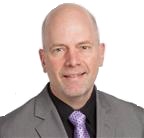Local and international MWH water experts recently presented on the cutting edge of water engineering at the 2016 OZ Water Conference. Our in-house water experts demonstrated once again their in-depth knowledge of the Water industry in practical presentations. Among the presentations, the ‘Risk based approach for overflow’ won the Best Paper and Presentation award at this conference. This paper was co-authored by Sydney Water and our MWH Global stormwater practice leader Clint Cantrell.
Please explore the abstracts and authors below which relate to:
- Wastewater treatment facilities
- Odour management
- Benefits and savings of the Distribution Optimisation Tool
- Risk based approach to overflows
Wastewater Practice Leader, Americas
B.S. Civil Engineering – Kansas State University
Ph.D. Civil Engineering – University of Notre Dame
Dr Umble Currently leads the Wastewater Practice for MWH for the Americas, focusing on municipal and industrial wastewater treatment technologies, with an emphasis on converting waste streams to value streams. Dr. Umble provides technical analysis and review support to design teams for new and rehabilitated wastewater treatment plants, with a focus on nutrient removal facilities, process optimization for treatment capacity, wet weather treatment, solids processing and disposal facilities, energy management, disinfection systems, and emerging contaminant removal technology. He is closely engaged in business development activities across the Americas related to wastewater treatment systems.
Read his abstract for Oz Water 2016 here:
Art Umble - Moving Wastewater Treatment Facilities to Resource Recovery Facilities
Ari Shammay
Senior Process Engineer, Australia
Ari Shammay, based in Australia, has developed odour control measures for pressurised sewerage networks as well as more traditional gravity systems which include chemical dosing and scrubbing systems. He has worked closely with operators and chemical suppliers to develop chemical dosing systems which can work reliably. Ari has developed septicity calculations, both steady state and dynamic, for single pipes and taking a whole-of-network approach. This has led to the development of odour treatment systems both in the gas phase and the liquid phase. Ari has been heavily involved in the investigation, optioneering, detailed design and construction of odour control systems on sewer networks and at sewage treatment plants.
Ari Shammay graduated with honours from the University of New South Wales with a degree in Chemical Engineering and a Masters in Commerce. He completed his thesis in membrane systems, specialising in membrane bioreactors.
Read his abstract presented at Oz Water 2016 here:
Ari Shammay - Odour management
Managing Consultant with Hawksley Consulting in Asia Pacific
Alana Duncker is based in Australia and has most recently been involved in the WaterLink joint venture for SA Water. Working as part of the OMC tools group her focus has been on the Distribution Optimisation Tool (DOT) which will assist SA Water to develop and plan optimised water treatment plant operating schedules and distribution network transfer configurations based on the latest climate forecasts and network constraints and water availability from upstream reservoirs and pumping from the river.
Alana Duncker holds a Masters of Business Administration (MBA) from the University of Adelaide and a Bachelor of Civil and Environmental Engineering (Hon) from the University of Adelaide. She is an Engineers Australia Charted Professional Engineer (CPEng).
Read her abstract presented at Oz Water 2016 here:
Alana Duncker - Benefits and Savings of the DOT
Global Practice Leader, Stormwater and Wastewater networks
BS (Civil); Grad. Studies (Env. Engineering);
Registered Professional Engineer (USA)
Clint Cantrell is MWH’s Global Practice Leader for stormwater and wastewater networks, and is based in New Zealand. He is a specialist in effects based consenting, master planning, wastewater/stormwater treatment, wastewater/ stormwater networks, overflow management (e.g. screening, storage and treatment systems) and wet weather programmes including inflow and infiltration assessment work and systems modelling. Clint is currently providing technical leadership for effects based overflow programs in Hamilton, Sydney, Brisbane and Melbourne. He has done similar work in the US and UK. Clint also oversaw the development of the recent Mangere Master Plan and the concept design of the Northern Interceptor, and served as the technical leader for concept design of the largest ever wastewater scheme in New Zealand (the Central Interceptor). In these roles he has had extensive experience with New Zealand-based consultation support and regulatory negotiations.
Read his abstract presented at Oz Water 2016 here:




